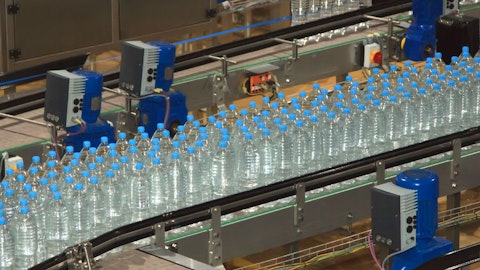David Willetts: With the energy shorts?
Andrew Berg: Yes.
David Willetts: Right now, our position, frankly, Andrew, is we are long in CVI, and we have one or two other longs in the energy area. So we’re not trying to make a particular bet on energy shorts. What we’re trying to do is we’re trying to manage the volatility so that we don’t have wild swings in our income and earnings with our energy positions. That’s the point of our energy shorts. It’s not a specific investment saying energy is going to go down. It’s trying to balance the long and short exposure.
Andrew Berg: Okay. With respect to automotive, the $32 million of adjusted EBITDA versus the $1 million, is that an apples-to-apples basis reflecting just the automotive services? Or is that a reflection of the deconsolidation of aftermarket? And if it’s the latter, can you give us any commentary on what the services adjusted EBITDA was on a stand-alone basis year-over-year?
David Willetts: I have to be a little careful. We use some terms a little casually, but I’ll answer the spirit of the question. So the services business today also has contributed – its EBITDA has gone up significantly year-over-year. And what I’d say is, if I’m looking at the sub-segment detail, the majority of the earnings for this segment this quarter were from services, these services business, very, very small piece, de minimis from the parts from residual parts operations. So when I try to contrast what happened year-over-year on EBITDA? You have two things. Auto Plus, which was losing a very sizable amount of money last year went away and services has, frankly, woken up and it started to really put some very good numbers on the board.
So the revenue, when you look at the revenue line, that is clearly the impact of Auto Plus going away since the services revenue was basically flat. EBITDA, however, I’d say roughly half of it is due to the services improvement, half of it is due to Auto Plus going away.
Andrew Berg: Okay. And then lastly, with respect to prior question, somebody asked with respect to the balance sheet. Unlike most companies typical operating businesses, who have concerns about debt going current on the balance sheet. Obviously, you guys have a ton of liquidity to cover the four and three quarters. They’re not callable until June next year. And so the expectation would be that, that will go current and as I recall, you guys tend to wait closer to maturities to deal with the refinancing because of the breakage cost that should be the same expectation here, shouldn’t that?
David Willetts: That, I think, is our historical pattern. The markets are so unusual right now that I just underscore, we look at this month by month to determine exactly when the right window is to refinance, if there is the right window to refinance it. So I would just say, past is accurate. We’re closely monitoring every month to determine what we do.
Andrew Berg: Okay. Sounds good. Thank you guys for all the information.
David Willetts: Thank you.
Operator: Thank you. And with that, ladies and gentlemen, I will conclude our Q&A session and turn it back to David Willett for comments.
David Willetts: Well, thank you, everyone, for joining us for the Q3 results. We look forward to speaking to you all when we talk about the quarter four results. Everyone, have a good afternoon. Take care.
Operator: And thank you all for participating. You may now disconnect.
Follow Icahn Enterprises L.p. (NASDAQ:IEP)
Follow Icahn Enterprises L.p. (NASDAQ:IEP)
Receive real-time insider trading and news alerts




